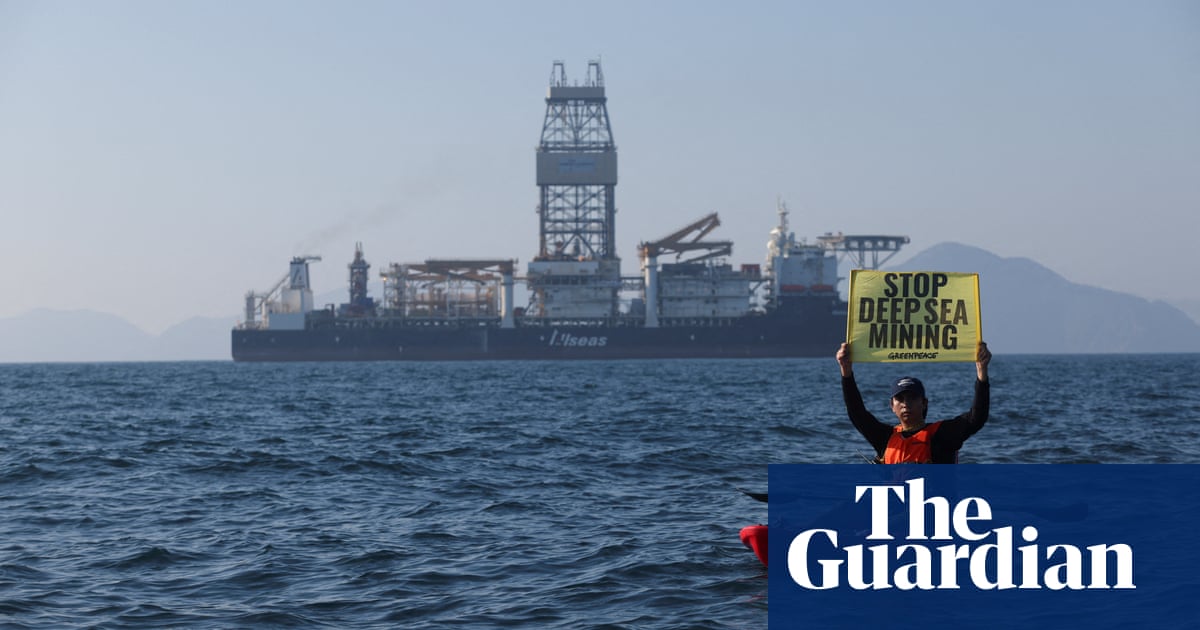Environmental groups are decrying an executive order signed byDonald Trumpto expedite deep-sea mining for minerals, saying it could irreparably harm marine ecosystems and ignores an ongoing process to adopt international rules for the practice.
Trump’s Thursdayorderdirected the National Oceanic and Atmospheric Administration to fast-track permits for companies to mine the ocean floor in both US and international waters.
The move comes as China controls many critical minerals such as nickel, cobalt and manganese used in hi-tech manufacturing, including for military uses. Trump said his order “establishes the US as a global leader in seabed mineral exploration and development both within and beyond national jurisdiction.”
The order also comes after the Canada-based Metals Company said it would request approval through a US subsidiary for mining in international waters.
The company issued a statement on its website on Friday saying it planned to apply for permits this year to mine nodules that contain valuable minerals “to strengthen US critical mineral supply chains”.
“As always, we remain committed to acting in the best interests of our sponsoring states, partners, investors, and the planet,” said Gerard Barron, the company’s chairman and chief executive.
But environmentalists worry it could harm fisheries and even affect oceans’ ability to absorb and store carbon dioxide, the main driver of global warming caused by the burning of coal, gas and other fossil fuels.
More than 30 countries, as well as fisheries trade groups, environmentalists and some auto and tech companies, have called for a moratorium on seabed mining.
“Scientists agree that deep-sea mining is a deeply dangerous endeavor for our ocean and all of us who depend on it,” said Jeff Watters, vice-president for external affairs at the Ocean Conservancy. “The harm caused by deep-sea mining isn’t restricted to the ocean floor: it will impact the entire water column, top to bottom, and everyone and everything relying on it.’
Such concerns prompted most countries in the 1990s to join a United Nations-affiliated International Seabed Authority to govern seabed mining in international waters. But the US never signed on to the effort, and has not yet adopted rules.
Watters warned that ignoring those efforts “is opening a door for other countries to do the same” before safeguards are adopted. The ramifications could resonate beyond deep-sea mining, affecting agreements on fishing, shipping, navigation and marine research, warned Duncan Currie, legal adviser for the Deep Sea Conservation Coalition.
The world also must ask if it can afford to not mine deep-sea minerals that could help develop low-carbon technologies to fight climate change and whether the impacts can be managed, said Assheton Stewart Carter, chief executive of the global consulting firm TDi Sustainability.
“We face tough choices and the prospect of uncomfortable trade-offs if we are to face and find solutions to serious climate change problems,” he said.
But Katie Matthews, chief scientist at the advocacy group Oceana, said Trump’s order to expedite the process now “is a clear case of putting mining companies’ greed over common sense … Any attempt to accelerate deep-sea mining without proper safeguards will only speed up the destruction of our oceans.”
